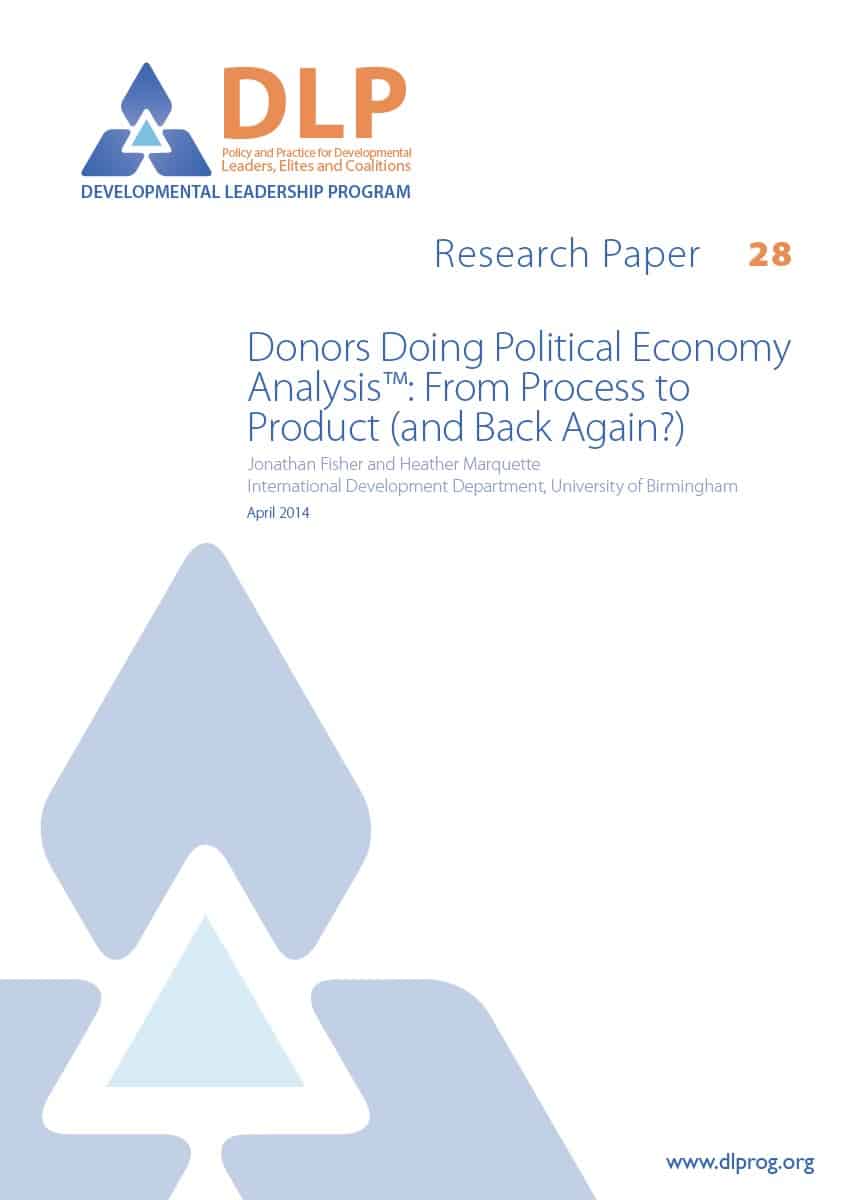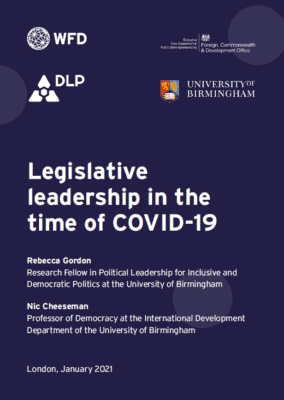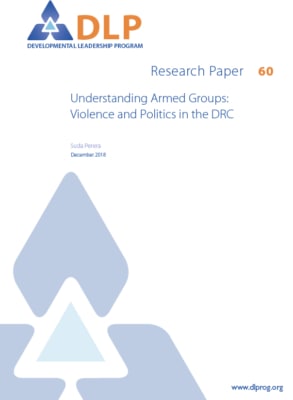Practitioners and academics are today convinced that ‘thinking politically’ is important to successful development interventions. Since the early 2000s, attempts to mainstream political thinking in most donor agencies have used a political economy analysis (PEA) approach, and yet this has been largely ineffective. This paper attempts to explain this failure through re-focusing current debate on PEA.
The paper argues that the process of PEA is not fundamentally flawed and indeed agrees, as PEA advocates have consistently argued throughout the 2000s, that success in future development programmes requires a wholesale re-thinking of the relationship between politics and international development.
However, we argue that PEA has today become a tool or product ‘sold’ to donors and ‘done’ externally, and it is no longer fit for purpose. We critique this type of ‘PEA™’, tracing its evolution from a transformative approach to policy-making to a discrete instrument that is applied to specific ‘problems’, usually by external consultants. We draw attention to the consistently faulty and introspective methodology that has informed the undertaking and application of PEA™.
Our analysis leads us to suggest that throwing away this model and doing something completely different is the only way donors can hope to move forward with the ‘thinking politically’ agenda.
Download the full paper below or a summary.











